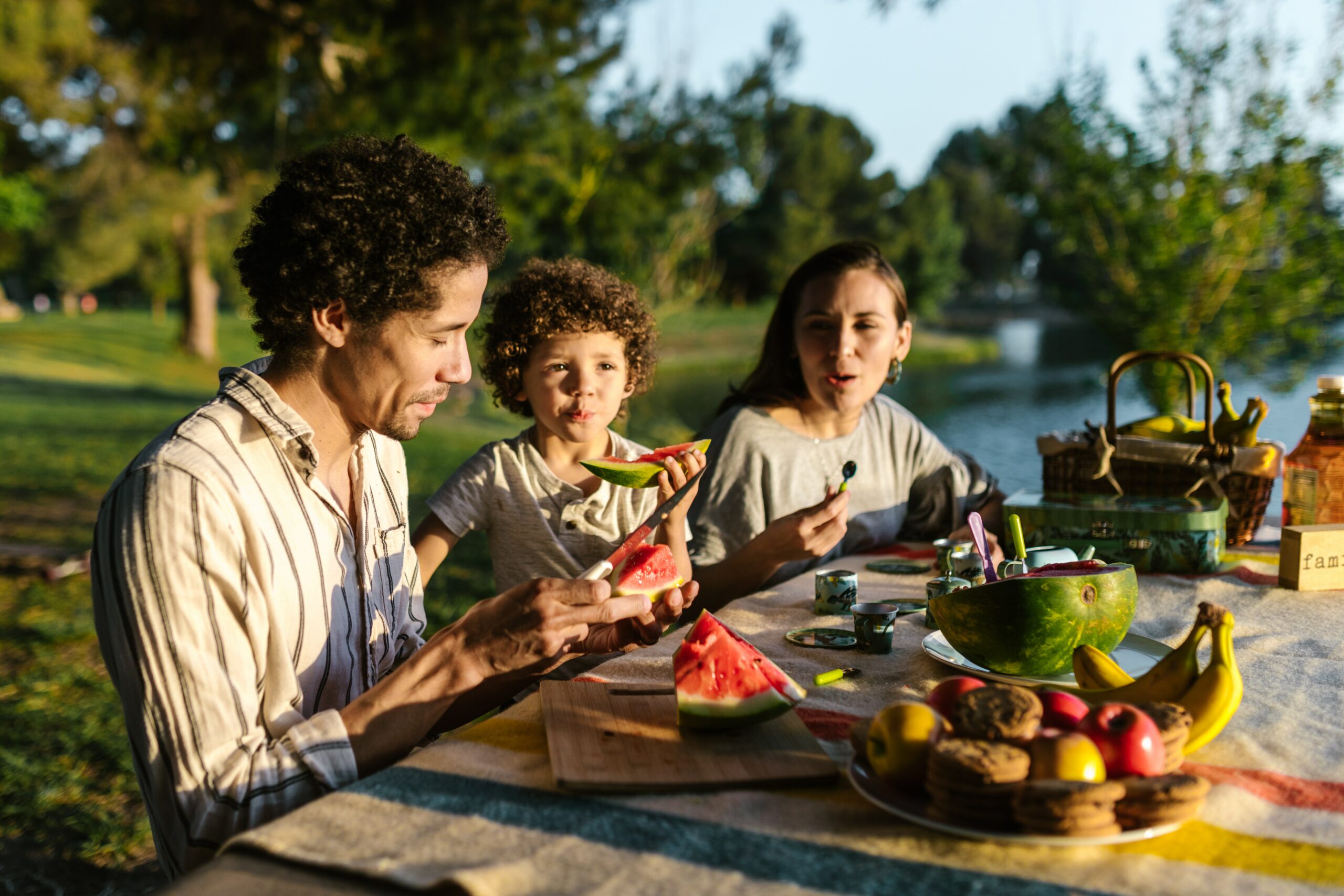Why is kids nutrition so important?
Kids' nutrition is important because it’s the foundation for a healthy future of caring for their body and loving food.
Let me paint a picture for you; You attend your friend’s birthday party where she has an icecream sundae setup and your mom sees your bowl filled with delicious gummy bears, M&Ms, boatloads of whipped cream, and drowning in chocolate fudge. She says, “Wow, that’s enough calories for the whole week!” or she says, “wow, what a masterful sundae you’ve made!” One statement has shame subtly added into it, the other is matching the childhood wonder that you felt as you built the ice cream masterpiece.🍨

Our childhood impacts the rest of our life
Think for a moment about your childhood experiences with food. When you were a kid, what did you eat? What did your parents eat? How did the adults in your life talk about food and their bodies? Kids are always listening and learning from us. Whether your current views on food and body image are healthy or not, there’s a pretty good chance that the origins of those views started when you were a kid.

Here at Vita Nutrition Services, we offer family dietitian services because we understand how important good nutrition is for kids. We know how hard it can be to teach good nutrition, and cultivate healthy relationships with body and food - Not to mention if you didn’t have that model for you as a kid!
So, how do we teach kids nutrition to a child in our care?
-
- Start with yourself. Like we said before, kids are watching and listening. Your child will learn from the way that you look at yourself in the mirror, what you say about food, what you put on your plate (or what you don’t put on your plate). If you’re struggling with your relationship with your body or food we are here and happy to help. To learn more about eating disorders click here, or to schedule an online appointment with one of our registered dietitians click here.
- Show don’t tell. Eat well and prepare a variety of healthy food.
- Learn Intuitive eating principles. It’s okay to listen to your body, snack, and eat desserts.
- Set boundaries around food that aren’t based in shame.
- Cultivate a safe, comfortable space to eat. It’s more than just picking whether to sit at the dining room table or at the couch - though eating with loved ones is definitely ideal - it’s most important that your child feels safe and unjudged while he or she eats.
- Seek external help when needed. If meal-prepping, teaching good nutrition, or figuring out where to start feels overwhelming, seek help. Connect with parent groups on Facebook, see a dietitian, or enroll yourself in a cooking class. Seeking help is not a sign of weakness, it's a sign of strength and growth.
Where to get additional nutrition help:
For additional help with kids' nutrition, schedule an appointment with our family foods dietitian, Ashley Cully. We’d love to help you make a difference in your kids' lives through good eating. We’d love to hear from you in the comments. How did your childhood experiences shape your relationship with food and body? If you have kids (or a kid) of your own, what are some things that have worked for good kids nutrition and what didn’t work?
This is not medical advice, if you think you or a loved one may have an eating disorder or health issues related to diet, schedule an appointment with a qualified healthcare provider.

Ashley Cully
Registered Dietitian focusing on kids nutrition, family nutrition, meal planning, and women's health.
Book your dietitian appointment
We can help you with meal planning, healthy eating habits, and equip you with tools to teach your kids good nutrition in a way that works for you and them.
